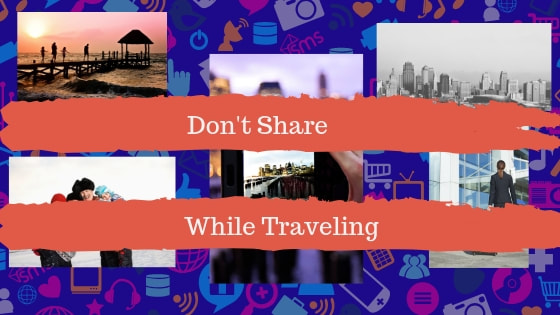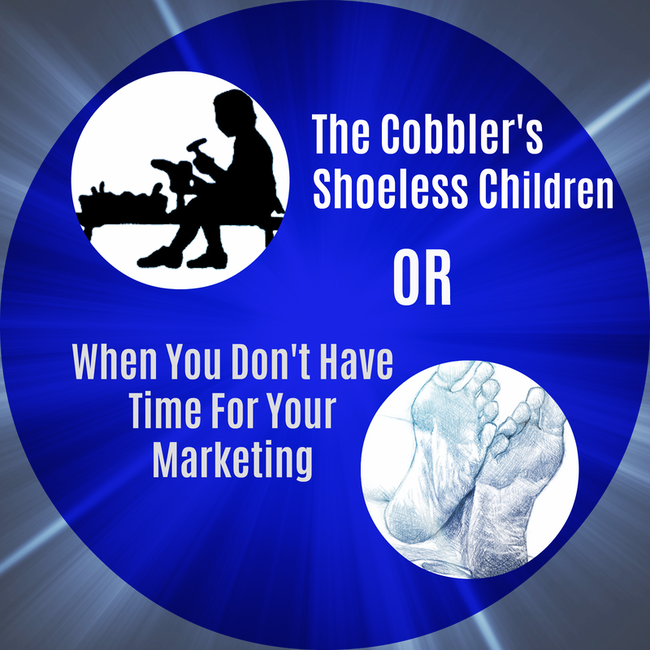|
Not too long ago, I joined some business acquaintances for lunch, which was a novel experience after 2020. One of them was new to our group, and when introductions came around to me, I explained that I handle social media marketing. Our new acquaintance said that they were just starting to use social media, and had someone showing them how to work with Facebook. Then proceeded to say, “But I don't do Twitter.”
We were all a little curious at this declaration, and someone beat me to the question of, “Why?” The reply was, “I don't understand tweets, so I don't use it.” The conversation moved on. However, it reminded me of the times I have heard similar comments from business acquaintances, and some clients. In terms of personal use that is fair enough, but for businesses they could be cutting themselves off from potential clients. Granted, you don't have to be on every social media site, but there are some that have a wide demographic of users; plus, many have an impact on the search engines. Five examples are: Google, Facebook, Twitter, Pinterest, and Instagram. I will also be the first to acknowledge that for a business owner it can be overwhelming to learn the various social media sites, and then to try to keep up with them. That is where a dedicated social media manager is very useful. What is my point to all of this? To any business owner, I would say, “Don’t reject outright a social media platform because it looks confusing, or it’s not a personal favorite.” You never know, it could be a perspective client’s favorite platform.
0 Comments
There is usually a lot of excitement about going on vacation, or even on a business trip, and if the trip goes well, there are new experiences to be discussed. And up to the advent of cell phones you usually had to wait till you got home to tell friends and family about the experience. And to show them your photographs.
Of course, now you can share each moment of a trip in real time with friends and family, and sometimes, thieves and scammers. The problem is that we are creatures of habit. We have become to depend on our smartphones for just about everything - from communicating to banking. And we have become accustomed to the gratification of an nearly instant response when we post something. It is just like having your friends there. Now, however, that can include people you don't really know. "Keep it secret" is the best advice, and here are some ways to do so: 1. If you are traveling don't announce it on social media, or a blog, and if you need travel advice, ask it privately. And if you can't contain yourself in your excitement please don't put dates and travel details. 2. It is actually advised to have a separate phone specifically for travel, which only has minimal personal data on it. If you cannot do this make sure that your security settings on your banking, and social sites are updated. 3. Try to avoid using public Wi-fi. If you need to a public hotspot look for secured public Wi-Fi that requires a password. This Tales Off Road article offers a excellent overview of pocket Wi-Fi devices, which would help you avoid using public Wi-Fi. 4. Turn off anything to do with location-identification so that it doesn't appear in your posts, and set your Facebook for Timeline Review in case you are tagged in a travel photo. 5. Do not share flight information. This type of information can be used for anything from virtual kidnappings to social engineering that targets businesses. 6. If it is a family trip make sure to talk to your children about online safety, and make sure the security settings on their phones are updated. 7. Don't post or "check-in" while on the vacation. 8. Save the Sharing till you get home! No matter how excited you are save all of those photos and comments till you arrive home. If that seems overwhelming use a social media scheduler for Twitter. Facebook no longer allows third-party apps to post to personal pages. And I am guessing a few are saying, "But I have my privacy and security settings locked down. Only friends can see it." That goes back to the question of "how well do you know all of your social media friends?" While hopefully this is a very rare case you can read here of a family whose home was burglarized by some of their daughter's Facebook friends. When traveling pretend like it's the "old days," and save your photographs and fond memories till you come home. Resources: Security Intelligence's "Five Tips to Stay Safe on Social Media While Traveling" Nationwide's "7 Social Media Vacation Safety Tips" Traveling with Stories' "Social Media Travel Safety Tips." I will fully admitted that I am still the cobbler with the shoeless children, since I first wrote this blog in 2018. As usual I became busy, and have not paid much attention to my own marketing. This is a rather sad admittance from a social media marketer, particularly since I know that consistency is the key.
Its not that I wasn't aware of how poorly it looked to have my business social media sitting unused. Yet, its hard to worry about my own when I am making sure my clients' marketing is taken care of. What made me sit back and realize that I needed to make time for my own marketing, and strengthen my strategy, is that I began getting calls from people. And these people were telling me that they were finding me from Facebook and Google searches. It is time for me to practice what I preach - that now my reputation is laid bare online. And it's not just a problem for me, but for most businesses that don't have an actual marketing department to monitor their online presence. I have had many people say, "I get my clients by word of mouth," or "I'm in good networking groups." There is no arguing that knowing someone, or being referred, gives you a stronger bond with the perspective client. This usually is how I come by my clients. However, this is ignoring those prospective clients who have a problem to solve, and they are searching. So if you don't have a sign on that road they never are going to know you. Or worse yet, get a damaged first impression because you aren't showing off your products or skills well. Now, when people want to learn about about a business, they have powerful research tools in their phone. If say, they wanted a plumber, they choose from the search the ones that look promising, then they take a look at the websites, and they also do a quick search of the review sites, such as Google, Yelp, and Facebook. If they find an active Facebook page they will also spend time seeing what is said, and being said, about the business. I also have had it said to me, "But I Have A Website!" Websites are important as they provide an anchor for your online presence, and they allow for a fuller description of what you do. However, websites are static. Social media gives a greater feel for what the business is like. So if a prospective client is having to decide between comparable businesses they are more than likely to go to one that is vibrant and active. Its definitely time for me to get some shoes on - and keep them on! The fact that Facebook is constantly changing often seems to be a curse, particularly if you are just on Facebook for personal use. However, for businesses it is usually a blessing in disguise, because many of those changes offer more ways to enhance your business page.
It can be a challenge to keep up with these tools, because of the variety, and the fact that many of them show up unheralded. So I am putting together a short overview of some of the tools and best practices. Some of these have been around for a couple of years, and a few were just recently added. I am not going to try to cover all of them, but this should give you a good start on what is available. It really is time to take your Facebook page seriously, because your clients and Facebook definitely are. Gone are the days when businesses and not-for-profits can expect to reach their followers' newsfeeds with an occasional post, or a fun quote. Remember, mobile is ever-growing, and most of your customers are doing a great deal of their decision making on their smartphones, tablets, and e-readers. Facebook is designing their various tools to help reach mobile devices. Facebook Page Templates. This is fairly new it allows for more control over how your page is organized. Its not really fancy yet, which I am sure will change, but it allows you to prioritize your tabs in order of what you consider important. Facebook Posts Just about everyone is familiar with a post, a photo, or a photo album, but many have not explored the options for: slideshow, carousel, or canvas (for mobile). The reach of a Facebook post is now contingent on not only being visually attractive, but leading to some type of worthwhile content. Businesses and not-for-profits have to seek a balance between promotion, images, and solid, useful, content. It is also contingent on consistent posting, and using your insights to learn audience behavior, and hit your key audience times. Nor can you get away from Facebook Ads. While they do not require a large commitment of money Facebook does look more favorably on clients that pay for ads. Facebook Live Facebook Live is a currently a mobile tool, but offers many ways to reach your followers and clients. Video is powerful on all of the social media, and Facebook is particularly fond of video that is embedded on their own pages. This can be Facebook Live, a slide show video, or something that has been uploaded. Facebook Live also allows for real time interaction with clients and followers. Facebook Shop This is for businesses with products, and gives you the opportunity to sell from your business page. It also offers the opportunity to focus your adds on your product catalog. Insights People are fairly familiar with this, but it also is developing and offering new insights into your followers and customers. Publishing Tools This offers you a great deal of control over your posts and videos. The categories are:
Currently this is used mainly for people who are managing multiple accounts. However, more functions require using business manager. Facebook Ads Manager This is part of your Business Manager, but it can be used separately. It allows for better organization, and better tracking, of your ads. This, plus the range of ads types, gives you greater flexibility than a boost would have. Types of Facebook Ads As other aspects of the business pages on Facebook expand so do their ads. They not only offer you a variety of ways to focus your ads and target audience, but they offer a variety of ways to make the ads very attractive visually. You also have the ability to run your ad on Instagram, and to have your ads reach beyond just Facebook. Right now this depends on the type of ad, and in the case of video, its length. I know that all of the options can seem overwhelming. However, Facebook does offer good training in their Business Resources. As with all projects it is always best to define your objective, and set up a plan on how to reach that objective. Ask yourself, "Who am I trying to reach?" "Where are they located?" "What do they like?" "How old are they?" If you take your Facebook marketing in small steps, and familiarize yourself with the tools that best meet your needs, then you will be able to better reach your clients. Social Media and Death Part 2 - Dealing With The Logistics of the Internet, Social Media And Death.11/24/2014 No matter whether family is having to go through personal effects, or handling bills, or dealing with computer accounts, many find it very hard to look upon the reminder of a life now gone. Often times the reaction is to deactivate the email and various accounts. However, what many don't realize is that in some cases deactivation is not actually deleting an account, and can be reversed.
The various social media platforms now require prove of death, and relationship, before accounts can be managed. However, they do offer various ways of handling the accounts. Facebook requires the survivors to contact them. They will never give out account information, but after proving that a death has taken place, and that you are the representative, you can request one of three actions. One is to request that the site be memorialized; this means that people can add to the timeline, and messages, but other than that nothing else can be changed. The second action is to deactivate; this is a reversible action, and the family can later decide to memorialize. The last action is to delete the account, and this is a permanent action. Twitter requires all documentation to be mailed in. They will not give out account information, but with the correct documentation they will deactivate the account. Google always seems to be thinking ahead, and offers the "Inactive Account Manager" so that you can decide how your many Google accounts are to be handled. You can decide if trusted contacts will have access to your accounts, or if your email and data will be deleted after an allotted amount of time. Pinterest requires full documentation of a death, and relationship, to deactivate an account. The family member needs to first send an email to their customer support. Linkedin requires an online form to remove a member's profile, along with proper paperwork. Instagram and Tumblr require you to contact their support emails, and representatives will then contact the family with the needed requirements. Many funeral homes are now creating checklists that can be used to make sure accounts have been dealt with. These same checklists can help with pre-planning, and provide the family with account information that allows for easier handling of the accounts. Still many would think that this is trivial compared to more pressing concerns of final arrangements, and financial concerns. However, internet accounts should be considered just as vital, since inactive accounts can be gateways to identity theft, and that is the last thing a family needs as they try to deal with the intricacies of death. Even more pressing is when the deceased was a business owner. Whether the business has employees, or the business owner was the only staff, those accounts are vulnerable. For businesses, particularly businesses with one or two employees, it is necessary to have a trusted associate have your sign-in information. If the business is going to continue you will not want accounts, such as Twitter, deactivated. Granted not many of us want to consider the hour of our demise, but most are coming to realize that funeral pre-planning is a good way to ease the way for our survivors, or to at least make sure that our final wishes are carried out. The same can be said with internet pre-planning. Make sure you have accounts and passwords listed somewhere, and then make sure that list is kept with your executor or funeral home. Also make sure to periodically update those lists, since we always end up with new accounts, or password changes. Facebook, Twitter, Google +, and Pinterest accounts are not normally high on the list of priorities when you are considering your final wishes. However, social media now effects every part of our lives and businesses, and in a three part series I will look at how it can impact the survivors.
I will grant that as a discussion topic this was far from my thoughts; at least not until I found myself reading a Facebook memorial service for an acquaintance. She and I had only reconnected on social media a few months past, and not soon after I noted a post where she said she was having a minor medical procedure done. Then came a flurry of sympathy posts for her passing, and her sister turned the deceased's Facebook page into a memorial site. The end result of this was I ended up interviewing the owners of Butler Funeral Home about how the funeral industry was handling social media. The first thing that Mr. Butler said was that whatever the medium used the human impulse to share news, and to give support, doesn't change. However, that with social media the spread of the news has sped up. He mentioned that this is something that families might want to take into consideration when using social media to announce a passing. When death happens there is a desperate need to reach out to the living, and in telling of the death to try to deal with the reality. Smart phones, laptops, and tablets make it far easier to reach out to friends and acquaintances, but the speed of communication sometimes out runs more traditional means. Mr. Butler said they have heard of families who heard about a death on Facebook before the official call came. The speed of interaction can also be a blessing for those directly involved, because it does allow of nearly instantaneous outpouring of sympathy, and help. It is also a way to share out funeral arrangements, and funeral homes are helping with this by linking obituaries to their social media. The Facebook accounts, and other social media, can also offer a place to share memories, which is particularly helpful for friends and acquaintances that can't be there in person. And if desired that page can be turned into a permanent tribute to the deceased. I'm going to say up front that I love when a business hires me to handle their social media marketing; not only because of the business itself, but the chance to design a program that works for my client. However, before any business takes a step towards social media as a marketing tool, whether on their own, or letting someone else handle it, there are new developments they need to take into consideration.
Not that long ago a Facebook business page offered a great opportunity for free marketing, and everyone had heard the stories of the pages that became phenomena in their own right. And the common cry was, "You have to have a Facebook page!" And that was what many businesses did, particularly the smaller ones. Some of those pages are now sad, empty virtual store fronts, but other businesses have dutifully posted to their pages. Maybe not every day, maybe not every week, but they posted. Unfortunately that faithfulness isn't offering the rewards it once did, and in truth hasn't in a while. What has been happening is that Facebook has truly become a corporation, and has been decreasing its "organic reach" (how your free posts appear in newsfeeds). And they are doing so again. Rumor has it that the changes is so that businesses will buy Facebook advertising, or buy "likes" to boost a specific post, and there is a strong likelihood that rumor is true. It has always been true that if you aren't active on Facebook (at least 3 times a week) that your posts would get bumped from newsfeeds by more active pages. This also requires having "sharing" and "liking" occurring. Now this is even more so. The truth be told, you can't just concentrate on Facebook. All of the social media platforms are intertwined. So to have it worth your while you need steady activity on Twitter, Google +, and Linkedin (at minimum). We won't even get into the power of original content (blogs) or YouTube. This is where you need to decide whether you can commit to social media. Small businesses always have had challenges when it comes to marketing. They try very hard to stick to flyers and business cards they can do themselves. Maybe get a free website up. And try to do a bit with Facebook. However there comes a time when you have to go to a printer, or get professionally done business cards, and its the same with social media. You have to ask yourself whether you have the money, or the time, to make it work for you? Sharing is a wonderful thing, and is what fuels social media marketing. But an incident that happened last night reminded me of a basic, and very reasonable, worry. The nutshell of what happened is that a local business shared a photo of their unique architecture. It was quite striking.
One of the things I like to do for local businesses is to share items from their newsfeed in order to offer support. And that was exactly what I did. About a half hour later I had a message come through from the photographer. She was delighted I liked the photo, but wanted to make it clear that it was copyrighted. We had a very nice exchange, and she relaxed once she knew why I was sharing it. A couple of realizations came from this. One is that neither businesses, nor individuals, have quite come to terms with the fact that business has come to Facebook. It is almost as natural as breathing to share photos with a friend, and then those friends share it again. But in everyone's mind, that is just amongst friends. With businesses the game changes. Sharing is still the name of the game - activity being a necessity on a business page, but it is no longer just amongst friends. The only suggestion I have for this is based on material being shared to a business owner/staff's personal page. If that happens I would recommend asking permission before it is shared. However, items are usually added to business page (unless the privacy settings are set to keep items from being added to the Timeline). Once that happens there is little to be done. And with the reduced size of the image there is little chance of a high quality download. So, if the photograph is copyrighted there is little chance of someone actually being able to "steal" a good copy. The other realization was that I personally needed to look into safeguards. This is particularly true as I put the final touches on the virtual gallery, Creative Pulse. There is going to be Facebook publicity for the site, and I wanted to make sure I had protected the artists' material to the best of my ability. The first things I learned is that most of the Facebook/photo tips no longer seem valid. After I had read several articles I went back to Facebook to test their accuracy. The common belief is that you can go to "Photos" and change the "public" settings on photos. You can't. The other belief is that only "Friends" can download your photos. I tested this with a couple of business sites that I had not "liked," and a couple of random people who were not "friends." The "download" showed up on all of their photos and albums. So far the simplest means of protecting your photographs and images is to reduce their size before loading them to Facebook. Though, for professional photographs, there are means of adding your name or watermark. As for Creative Pulse I have turned off the "copy" ability on the website, and will make sure that publicity images are reduced. Recently I overheard a conversation while I was at a dinner, and during the course of the meal the conversation managed to cover both the uses and liabilities of social media. The over-dependence on social media in this particular case had caused hard feelings amongst friends. This "why"was being discussed in length by my table partners. The lament was that some had been invited to a party, and some hadn’t. It turned out that their friend had only used Facebook’s “Events” to notify everyone. He had not calculated that some were not daily Facebook users, and if they were, that they didn’t check the notifications. At the opposite end of the spectrum was a woman who admitted she usually didn’t know where her daughter was. And in order to keep track of the girl her mother would call the girl’s aunt. The reason the woman’s sister was in the “know” was because she kept an eye on Facebook and Twitter, since she had children of her own. The woman’s excuse was, “I don't pay much attention to Facebook.” It all comes down to social media being a communication tool. And with all tools there are times when it needs to be used in concert with other tools. When having a party, or a meeting, it needs to be kept in mind that not everyone is going to be checking their social media. Invitations and announcements also need to be put out in either paper form, or email; along with social media reminders. Yet, on the other hand, social media is a powerful tool. There shouldn’t be a disdain for it just because it’s “just” social media. This holds particularly true for parents. Parents need to stay aware of popular trends in social media, and know how their children are communicating. It has been noted that with a teenager a “tweet” is rarely ever left unread. This time around I am going to focus on public opinion and communication. Letter writing has always played a huge role in the spread of public opinion, with an example of this being during the heydays of immigration. In A True Picture of Emmigration, by Rebecca Burlend, the author told how her husband listened for news of letters coming from America. Then he would go and hear what was said of conditions in the U.S.. Nor can the power of the coffee and chocolates houses be forgotten - as those gathering places were where politics and popular opinion were vehemently discussed.
Jumping ahead to today, and particularly to the oft-bemoaned fact that everyone has their nose in their smart phones and tablets. And while I will admit that I too bemoan this on occasion it also cannot be ignored. Or, it might be better to say, "It is risky to ignore." The forums for public opinion have changed, and become lightening fast.... ......Pictures of a restraurant dinner on Facebook are usually sent with a comment..... ......Bored people, waiting in line, having nothing better than to Tweet their status...... Basically opinions of businesses and services fly with the speed of thought. And businesses can only ignore this at their risk. If you don't "hear" what is being said then you cannot highlight the praise, or show solid customer service, if there was a problem. Nor can a business afford to focus on just one "window" into the thoughts of their customers, because their clients may use a Tweet one day, or a FB post the next. Or they may be on a tablet, and writing a longer review on Google Plus. |
Cathy Mosley
Cathy Mosley brings her 26 years of storytelling and writing experience to the realm of Social Media. To help small businesses. Archives
July 2021
Categories
All
|







 RSS Feed
RSS Feed

